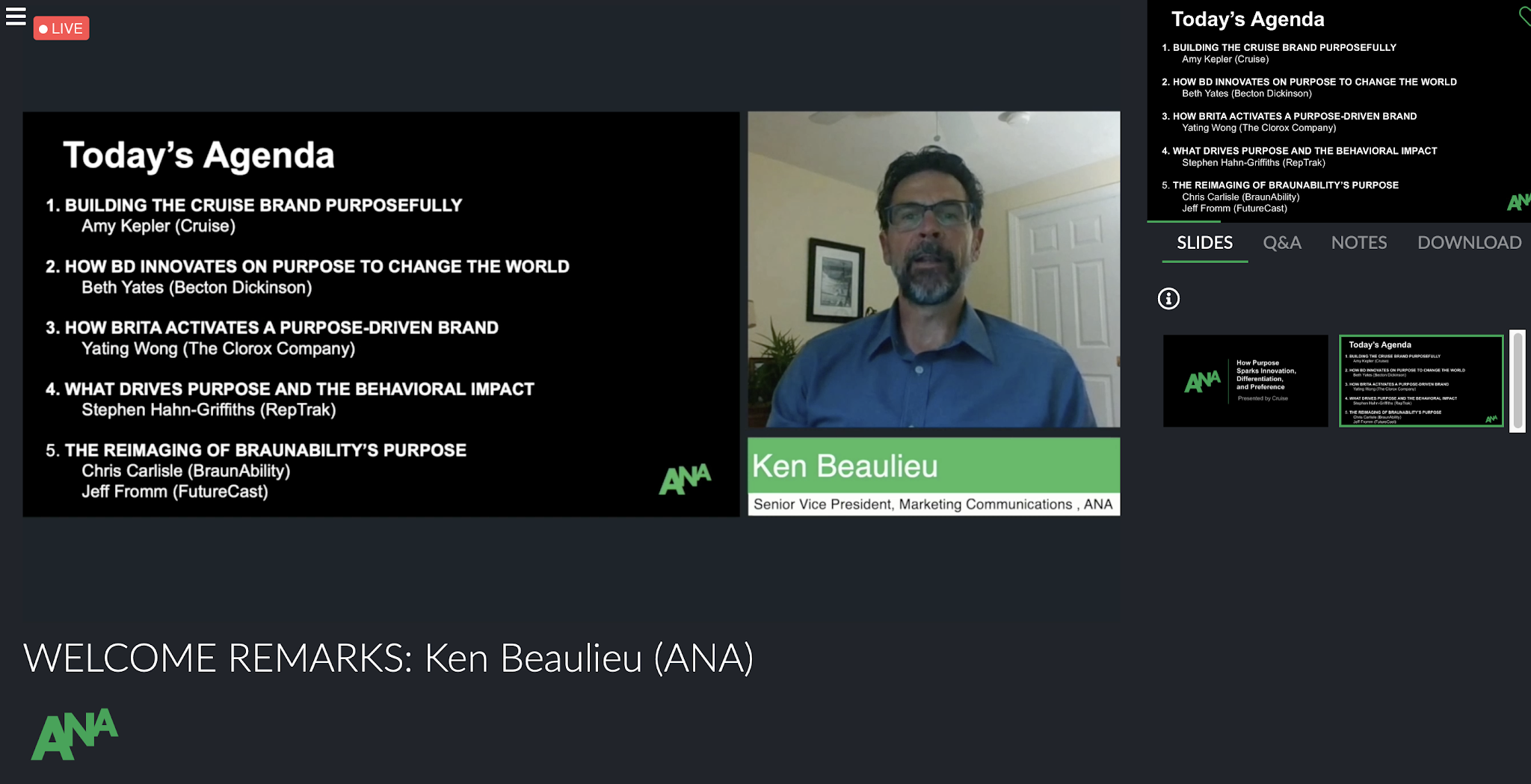The ARF Town Hall: How COVID-19 is Affecting Public Attitudes, Emotions, and Values! | Nicole Alexander
The COVID-19 Difference:
In this Town Hall, Cliff Young and Trevor Tompson show how Americans are faring in the current COVID-19 pandemic. Both compared current attitudes with other major American events including, 9-11, the Kennedy assassination, Hurricane Sandy, and the Great Recession to see if there are similar sentiments. The major takeaway I had is that the difference between this pandemic and previous significant events is social isolation. Before, despite the hardships, we were able to interact with family and friends to help curb the event’s impacts on mental health. But with COVID-19, we have to distance from each other and be social through other means like social media and phone conversations. This is contributing to higher levels of anxiety and worry amongst the sample polled. “Friends and family were cited most frequently as the source people turned to for help! With that, the need for people to self-isolate in the current crisis may make it harder for people to get the help they need from friends and family!”
“Those who have self-isolated more find more challenges to their mental and emotional well-being. There's been worsening of mental health but ultimately some stabilization.”
The Shift in Perception:
American’s views on the pandemic shifted pretty dramatically from mid-February to now. “Our surveying 1,057 adults nationwide show that 50% now are extremely or very worried that someone their family will get infected compared to about 22% in mid-February.” The panelist cite various reasons for this, but ultimately it was due to the initial mixed messaging of the severity of the virus. Once it became clearer how COVID impacted many other countries and begun to get more coverage in the U.S., it became more of a threat and concern for the sample polled. With increased information, Americans were more comfortable with the measures proposed to help stop the spread.
"There is widespread support for measures being taken to stop the spread such as limiting gatherings, closing schools, and banning travel."
Biggest Concerns:
This pandemic has also raised concerns for how equipped the U.S. is to deal with the after-effects of distancing when it comes to healthcare and the economy. Healthcare was cited the most important issue facing Americans today followed by the economy. Respondents prioritized healthcare over economy, but still viewed both as the most important issues we have to deal with during and after the crisis. "While there is increased concern about the virus, there is a lot of concern about the U.S. health care system's ability to handle the pandemic." Previously, immigration was cited as an important issue, which shows the shift in priorities. Likewise, Americans expect their financial outlook to change after this pandemic. 27% of respondents expect to have some form of increased debt and more than half reported a change in their paychecks.
“The more educated and affluent America is going virtual. But the poorer or less affluent America is being furloughed, laid off, or forced to work.”
With that, Americans are buying from trusted brands or settling for what’s available as they navigate their financial life in this new era. It took 8 years for most people to recover from the Great Recession, and some segments, including Black Americans never fully recovered. This is something we have to pay attention to as we transition post-COVID.
What’s Next:
Americans believe the pandemic won’t end until July or after. Trust in Government and the Executive branch is low, which might be contributing to the spread of misinformation and conspiracy theories. Still, it’s important for us to do our best to remain connected with our family in some way and for us as a nation to be mindful of the greater impact COVID-19 will have on the mental health of society.



